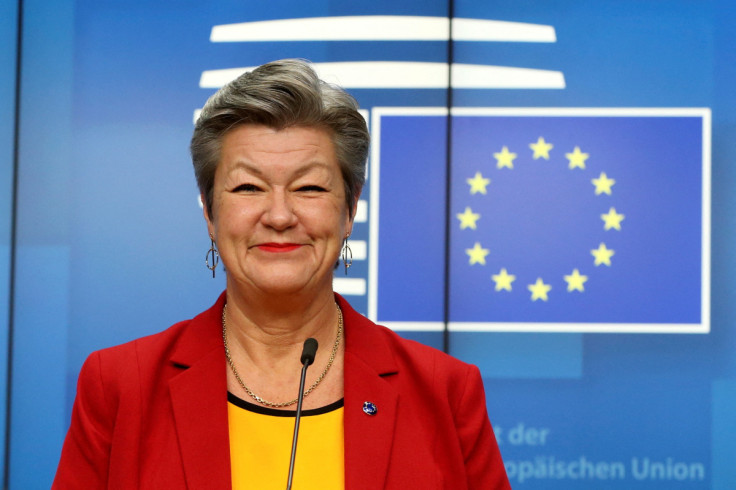Breakthrough On Stalled EU Migration Deal Coming This Week - Official

European Union countries are expected this week to agree on how to share out the responsibility of hosting refugees and migrants, a top EU official said on Tuesday of what would mark a breakthrough after years of bitter feuds within the bloc.
The EU's migration chief spoke ahead of talks between home affairs ministers of the bloc's 27 member states on Thursday. On the table is an overhaul of EU asylum rules which broke down in 2015 as more than a million people - mostly fleeing the war in Syria - reached the bloc across the Mediterranean.
"It's about having a European migration policy," EU migration commissioner Ylva Johansson told reporters. "When we work together, we are so strong... This is not a zero-sum game. It's not about winners and losers.
"If we agree on a common approach to managing migration in a humane but restrictive way together, we would all be winners because we will be able to manage migration together in an orderly way."
Agreeing a joint approach has proven all but impossible for EU countries since 2015 when the sea arrivals caught the bloc by surprise, overwhelming its reception and security capacities.
Ever since, EU countries of arrival like Spain, Italy, Malta and Greece have demanded more help. The rich destination countries like Germany, France and Sweden have said they cannot be the only places where the new arrivals end up.
Bad blood spilled over as eastern EU countries like Poland and Hungary refused to host any refugees and migrants from the mainly-Muslim Middle East and North Africa.
The EU has stepped up efforts to keep people away, with U.N. data showing fewer than 160,000 people made it across the Mediterranean last year. Nearly 2,500 died or went missing on the dangerous voyage.
But the bloc has so far failed to agree on how to share out the responsibility of caring for those who do make it, differences playing out prominently as right-wing and populist parties fuelled the debate with anti-immigration rhetoric.
WINNERS AND LOSERS
At the heart of the dispute is whether all EU countries would have to host people - as long demanded by the south and the west - or would eastern countries be allowed to buy themselves out of hosting by offering aid in the form of money or personnel.
Johansson said the tentative deal allowed for the latter, adding that it envisaged no "mandatory relocations" of people and that EU states could chose how to show solidarity with peers.
"I actually foresee we will find a compromise along those lines," she said.
She also warned those who are reluctant that they did not have a veto in the majority vote, and cautioned against taking tough lines on migration for domestic political purposes.
"Without an agreement we are all losers," she said. "With an agreement, we are actually all winners, including the migrants, because when we work together, we can also welcome migrants and refugees in a more orderly way without risking their lives."
© Copyright Thomson Reuters {{Year}}. All rights reserved.



















